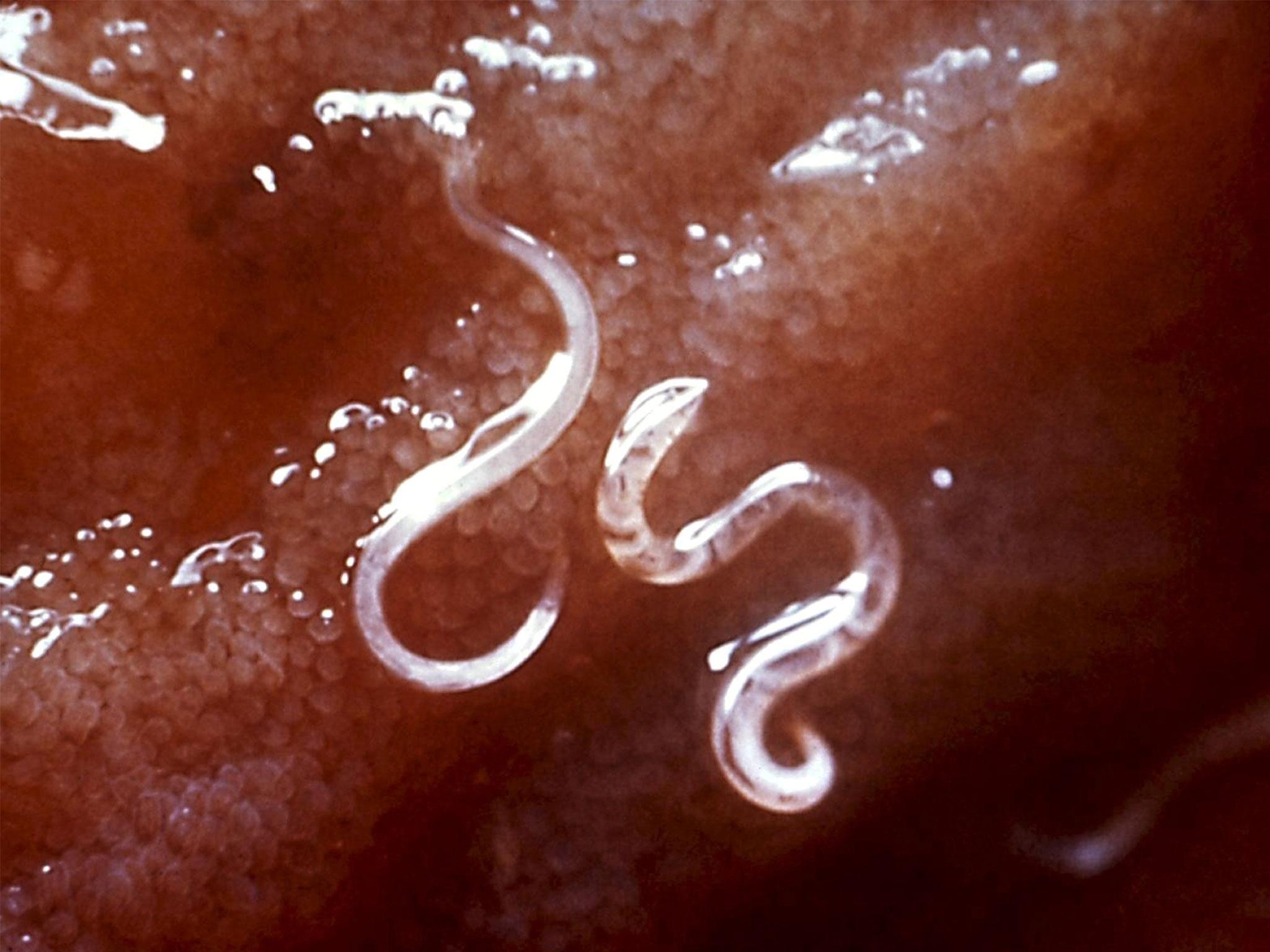Parasitic worm study removed after pictures of British couple's buttocks published by tabloids
Medical journal pulled after couple complained that their intimate photographs had ended up in several newspapers

Your support helps us to tell the story
From reproductive rights to climate change to Big Tech, The Independent is on the ground when the story is developing. Whether it's investigating the financials of Elon Musk's pro-Trump PAC or producing our latest documentary, 'The A Word', which shines a light on the American women fighting for reproductive rights, we know how important it is to parse out the facts from the messaging.
At such a critical moment in US history, we need reporters on the ground. Your donation allows us to keep sending journalists to speak to both sides of the story.
The Independent is trusted by Americans across the entire political spectrum. And unlike many other quality news outlets, we choose not to lock Americans out of our reporting and analysis with paywalls. We believe quality journalism should be available to everyone, paid for by those who can afford it.
Your support makes all the difference.The British Medical Journal has pulled a paper on parasitic worms after the subjects of the study ended up having photos of their buttocks published by tabloids.
An unnamed husband and wife contracted the infection on the island of Martinique during a Caribbean cruise.
While enjoying a trip to the beach, the couple reported feeling an initial burning sensation on their skin as they sat on the sand.
A day later, the 52-year-old woman noticed a rash of “red pinprick marks” had appeared across her buttocks, according to the BMJ report.
The pair later sought treatment at Addenbrooke’s Hospital in Cambridge, where doctors told them they had cutaneous larva migrans, also known as hookworm larvae.
They were both treated with medication to treat parasitic infections after a round of steroids and antibiotics they were given on the cruise ship failed to work.
But trouble arose when Dr Douglas Maslin at Addenbrooke’s decided to share the case through the BMJ after noting a “lack of familiarity with the condition” had delayed his team from making a diagnosis.
Photographs of the couples’ infections posted alongside Dr Maslin’s report were soon picked up by several tabloids.
Within days of the findings being published, the photographs were being run next to stories with headlines such as “Caribbean getaway leaves a nasty souvenir” and “Beach couple left with burning red rashes on their backsides”.
The exposure proved too much for at least one of the subjects, as the BMJ has now accepted a request to remove the study from its records.
“This article has been withdrawn”, the BMJ website now reads in the place where the article once was.
“With no admission of liability, BMJ has removed this article voluntarily at the request of the patient concerned.”
Addenbrooke’s Hospital has been contacted for comment.
Join our commenting forum
Join thought-provoking conversations, follow other Independent readers and see their replies
Comments